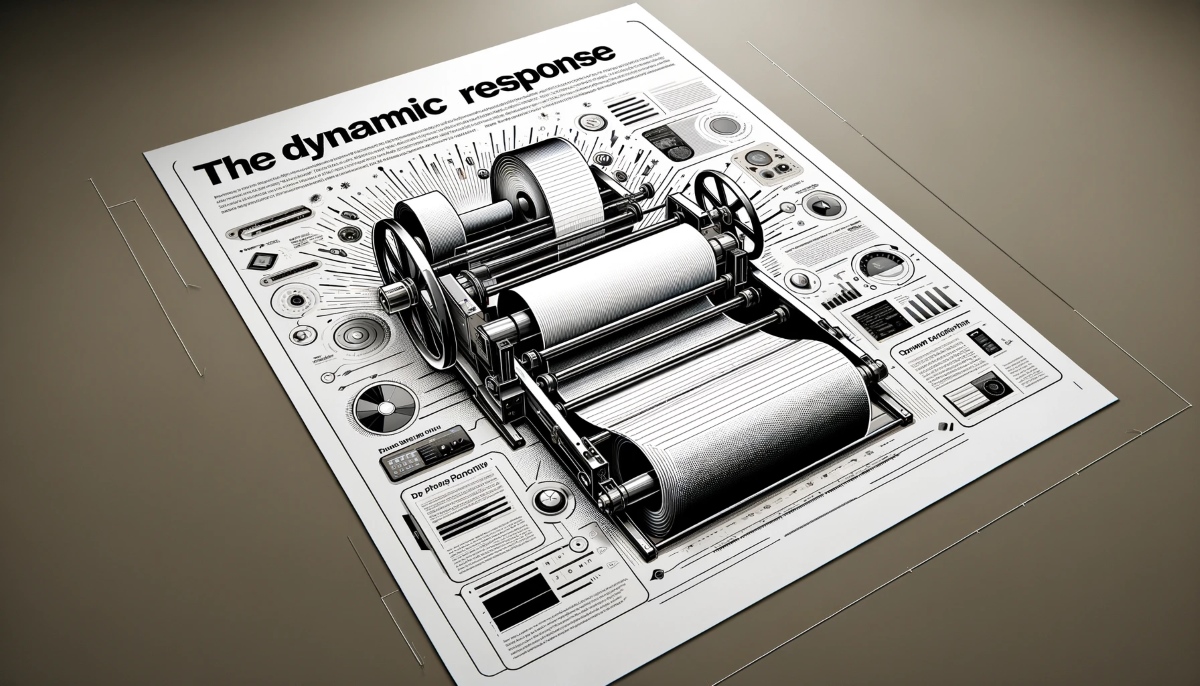How is the dynamic response in DC drives?

Hello DC Control friends,
The dynamic response of a DC drive is often considered one of its strong points compared to other types of drives like AC drives. The dynamic response is essentially how quickly and accurately the drive system can respond to changes in setpoints or external disturbances. This is especially important in applications that require fast accelerations, decelerations, or changes in direction. Here are some reasons why DC drives often have good dynamic response:
Speed and Torque Control
DC drives are known for precise and quick control over motor speed and torque, often providing near-instantaneous response to control inputs. This is due to the simpler electrical characteristics of DC motors, which generally allow for more straightforward control algorithms.
Simplicity in Control Algorithms
DC drives often use simpler control algorithms compared to AC drives, which often leads to quicker response times. This is especially true for applications that do not require the variable frequency operation provided by AC drives.
High Starting Torque
DC motors can provide a high starting torque, which allows for rapid starts and stops, adding to the drive's good dynamic response.
Regenerative Braking
Many DC drives have built-in regenerative braking capabilities, enabling faster deceleration and energy recovery, which can be crucial for quick stops or rapid changes in direction.
System Tuning
DC drive systems can often be easily tuned for optimal performance, enabling users to customize the system’s dynamic response according to the specific application needs.
Feedback Systems
DC drives often use feedback systems like tachometers or encoders to provide real-time information about the motor's speed and position. This feedback is used to adjust the drive's output, providing excellent control and dynamic response.
However, it's essential to note that while DC drives generally offer excellent dynamic response, they may not be the best choice for all applications. AC drives have their own advantages, such as better energy efficiency and lower maintenance for certain applications.
When considering a drive system for your application, it's crucial to assess the dynamic response requirements carefully. Consulting with experts and conducting tests with the actual load conditions can provide valuable insights into choosing the most appropriate drive system.
While the use of DC drives in industry (at least at high power levels) has diminished, they are still widely found. Below, we have attempted to answer the most frequently asked questions about DC drives from our visitors.
- What are the operating principles of DC drives?
- What are the different types of DC drives?
- What are the key differences between DC drives and AC drives?
- What are the typical applications for DC drives?
- How energy-efficient are DC drives?
- What are the control methods used in DC drives?
- What type of DC drive is most suitable for a specific DC motor?
- What are the most common problems and solutions associated with DC drives?
- What are the power ranges used in DC drives?
- What additional components are used alongside DC drives?
- What are the advantages and disadvantages of DC drives?
- How do I choose a DC drive?
- How scalable are DC drives?
- Is integration between a DC drive and a PLC possible?
- What are the lifespan and maintenance requirements for DC drives?
- What safety features are included in DC drives?
- How is the dynamic response in DC drives?
- What feedback options are available in DC drives?
- What types of protection mechanisms are used in DC drives?
- What types of sensors can be used with DC drives?
These questions generally also encompass the types of queries that many people may have about DC drives. Each user or student will have their own unique question or interpretation depending on the specific situation or application. The answers provided are not binding and are not definitive. "You are welcome to share the article above as long as you cite it as the source." 05.2019
Your shopping cart is empty!
